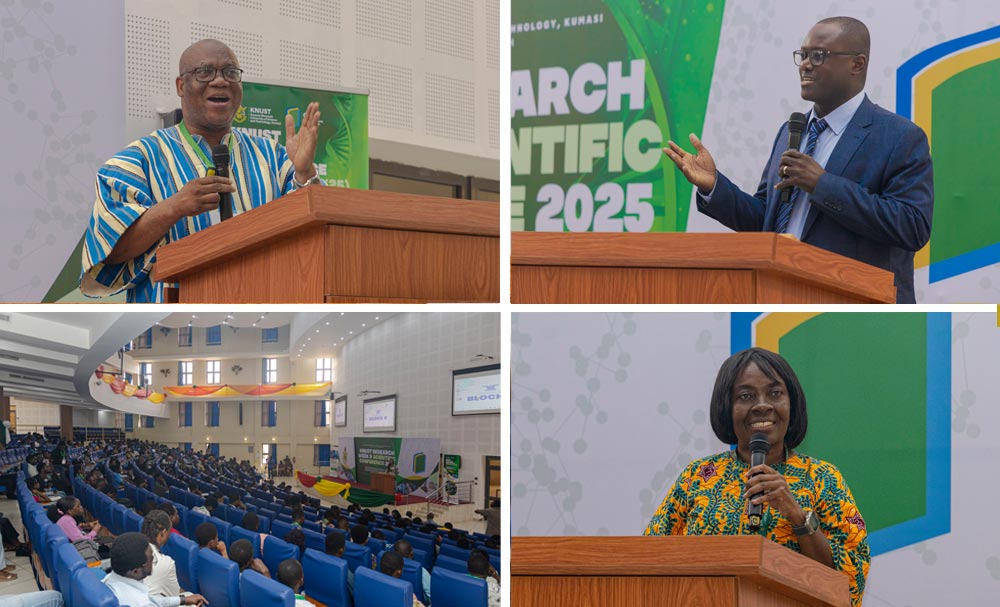Director of the Office of Grants and Research, Professor Jerry John Kponyo says Ghana must take a deliberate and sustained approach to investing in science, technology and innovation (STI) if it hopes to drive national development and match the progress of leading economies.
Speaking at the closing ceremony of the KNUST Research Week and Scientific Conference 2025, held under the theme “Driving Socio-Economic Transformation through Emerging Technologies and Innovation Ecosystems”, he said Ghana cannot replicate the success of the Asian Tigers without prioritising STI.
“In the area of science, technology and innovation, if we get it wrong, we definitely cannot be able to replicate what others have done in other jurisdictions,” he said.
Professor Kponyo pointed to Singapore, India and Malaysia as examples of nations that made intentional investments in science and innovation, enabling them to leverage technology for rapid economic growth.
He highlighted sectors where STI could deliver immediate impact, including food and water security, agriculture, health, energy, transportation, logistics, infrastructure and education.
He recommended the establishment of technology labs and innovation parks in key institutions, deliberate steps toward research commercialisation, and the creation of a National Research Fund to support emerging technologies.
Professor Esmeralda Manful, Head of the Department of Sociology and Social Work, stressed the need for collaboration and interdisciplinary approaches rooted in co-creation, knowledge exchange and trust. She said fragmented research would not solve Ghana’s pressing challenges and called for research that reflects real societal needs.
“If we need a sustainable future, there is the need for synergies among disciplines… to ensure that we conduct excellent research for eminence in society,” she said.
Professor Sam Laryea, Head of the School of Construction Economics and Management at the University of the Witwatersrand, emphasised the importance of evidence-based social science research in building inclusive and resilient societies. He said many national challenges are tied to human behaviour and social factors.
“Sometimes we approach a problem only using an engineering solution, just to find out that what we actually need is a social science approach,” he said.
Professor Laryea urged researchers to ensure their work is locally relevant but globally competitive, saying they must “conquer the local and theorise it to the global.”
Sharing findings from his analysis of 105,000 top-tier journal papers published over five years, he noted that 80% originated from the Global North, 15% from developing countries such as India, and only 5% from Africa, a trend he described as deeply concerning given the continent’s low impact in key research areas.


















